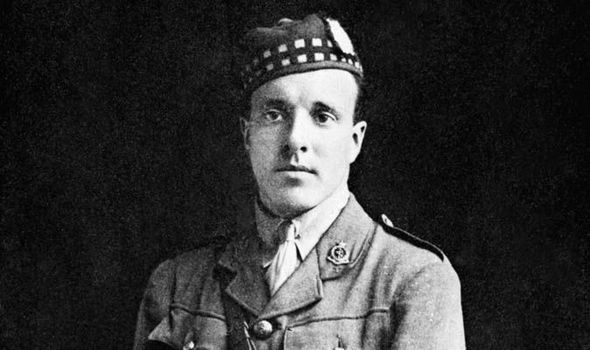Double Victoria Cross winning First World War hero honoured with memorial stone

THE only First World War soldier to win the Victoria Cross twice is to have a memorial stone laid in his honour.
Captain Noel Chavasse, an Oxford graduate who ran for Britain alongside his identical twin brother in the 1908 Olympics, died from his wounds at Wieltje, Belgium, on August 4, 1917.
Afterwards a brigadier wrote to his parents saying: “He was quite the most gallant and modest man I ever met. I do not believe a man of more noble character exists.”
A paving stone will be laid in his honour outside St Peter’s College chapel at Oxford University on Tuesday.
It will be exactly 100 years since Captain Chavasse was awarded his first VC for attending to the wounded all day under heavy fire at Guillemont, France.
The second award was made for his heroism between July 31 and August 2, 1917, during the battle of Passchendaele.
Though severely injured while carrying a fallen soldier to safety, he refused to leave his post and for two days went out repeatedly under heavy fire to search for and attend to the wounded.
On August 2 he was injured by a shell which killed or wounded all the men in his dugout.
He crawled half a mile for help and was said to have saved the lives of at least 20 men.
He died two days later aged 32.
A second paving stone will be unveiled in November at Magdalen College School as part of a nationwide Government programme designed to honour those who won the Victoria Cross during the First World War.
Communities Minister Lord Bourne said: “The paving stone provides a fitting tribute to his extraordinary courage and valour. Not only did he risk his life once, but on two occasions to save wounded comrades.”
Captain Chavasse joined the Royal Army Medical Corps in 1913, going to France as a surgeon-lieutenant with the Scottish battalion of the Kings (Liverpool) Regiment.
He was one of the first doctors to use a new anti-tetanus serum and when the Germans began using chlorine gas he arranged for his father, the Bishop of Liverpool, to send a gramophone to raise morale.
As well as his two VCs, he was earlier awarded the Military Cross for action at Bellewaerde, near Ypres, Belgium, in 1915.
Политика конфиденциальности | Правила пользования сайтом







